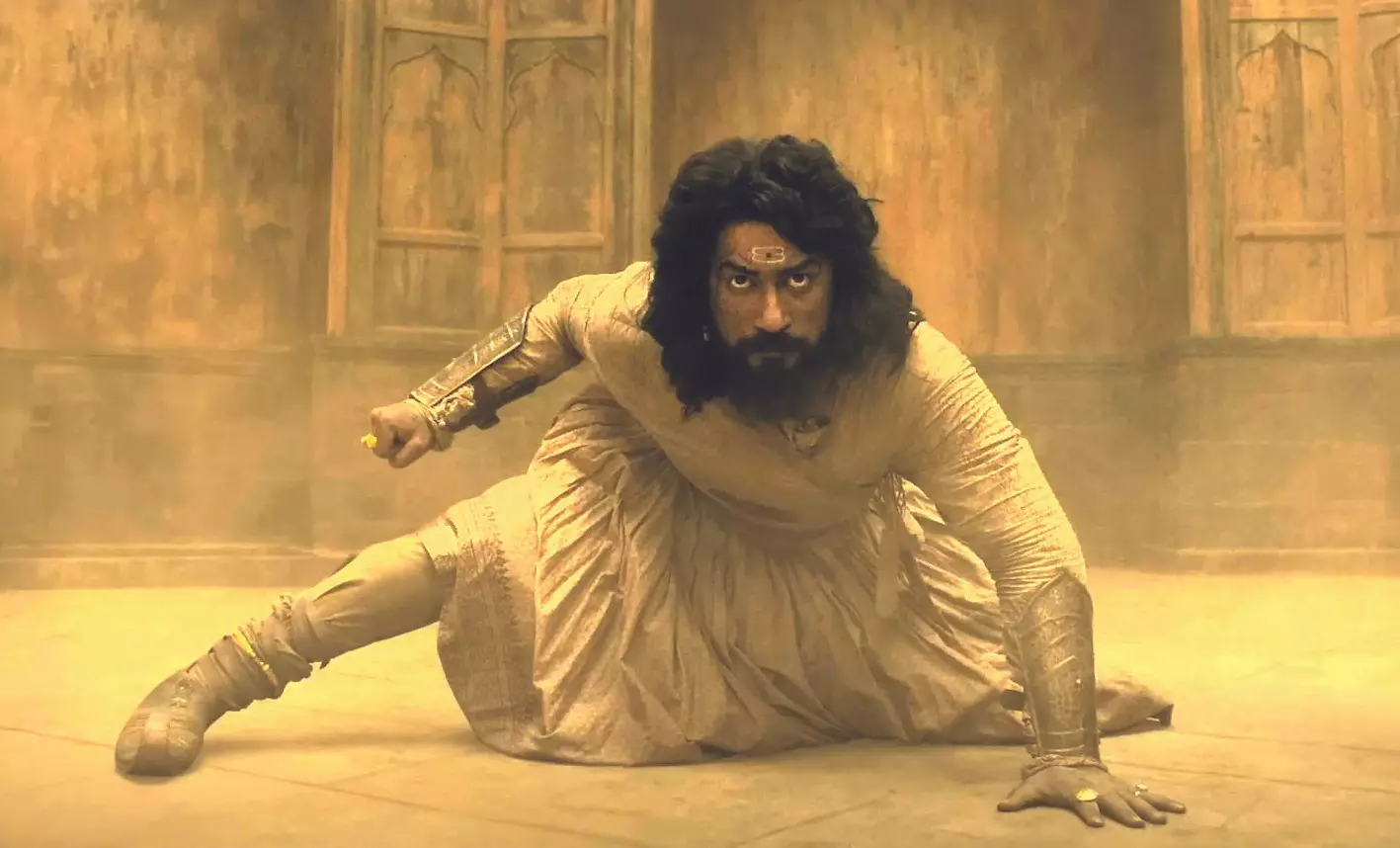
- Home
- India
- World
- Premium
- THE FEDERAL SPECIAL
- Analysis
- States
- Perspective
- Videos
- Sports
- Education
- Entertainment
- Elections
- Features
- Health
- Business
- Series
- In memoriam: Sheikh Mujibur Rahman
- Bishnoi's Men
- NEET TANGLE
- Economy Series
- Earth Day
- Kashmir’s Frozen Turbulence
- India@75
- The legend of Ramjanmabhoomi
- Liberalisation@30
- How to tame a dragon
- Celebrating biodiversity
- Farm Matters
- 50 days of solitude
- Bringing Migrants Home
- Budget 2020
- Jharkhand Votes
- The Federal Investigates
- The Federal Impact
- Vanishing Sand
- Gandhi @ 150
- Andhra Today
- Field report
- Operation Gulmarg
- Pandemic @1 Mn in India
- The Federal Year-End
- The Zero Year
- Science
- Brand studio
- Newsletter
- Elections 2024
- Events
- Home
- IndiaIndia
- World
- Analysis
- StatesStates
- PerspectivePerspective
- VideosVideos
- Sports
- Education
- Entertainment
- ElectionsElections
- Features
- Health
- BusinessBusiness
- Premium
- Loading...
Premium - Events

While the Hindi film industry's survival tactics are backfiring, the southern industry has rewritten the rule book with storytelling, innovation and audience trust
Patna’s Gandhi Maidan is usually a venue for displaying political prowess. Filling up the gardens in the heart of the city is no easy feat. For politicians, a packed maidan is their way of showing they have arrived.
So, when Allu Arjun headed to Gandhi Maidan to promote his movie Pushpa 2, I had my doubts. Would Bihar accept him? To my surprise, the maidan was chock-a-block. People knew exactly who he was and were more eager to watch his movie than a Bollywood blockbuster.
Now, this isn’t another South Indian cinema vs Bollywood debate. Bollywood lost that battle years ago when it failed to see the writing on the wall.
Silent revolution
For over two decades, South Indian films have been dubbed in Hindi and made available in the Hindi hinterland on cable TV. It was a silent revolution brewing for a while. Much like Chinese cars, they haven’t suddenly taken over the world. There are two decades of undercurrent behind it.
Also read | Shah Rukh Khan: The King of Bollywood who wears humanity like a second skin
Today we talk about how, in the name of course correction and survival, Bollywood is inflicting wounds upon itself — like an autoimmune disease killing the body.
Earlier this month, Al Jazeera, an international news channel broadcast out of Doha, published an in-depth report on its website. It exposed a well-oiled fake review scam that has become deeply institutionalised in the Hindi film industry.
The playbook is simple: filmmakers or production houses pay critics hefty sums to write glowing reviews of their movies. The goal? To create artificial hype, mislead audiences, and drive them to theatres.
PR vs paid reviews
Well, that didn’t happen, did it? The website had a detailed rate card for individuals and companies, possibly for a single project or movie. At first glance, it seemed like an interesting read, but a look at the comments below the article revealed Bollywood apologists arguing that public relations is an established practice.
So, what’s wrong with it?
The problem is that Bollywood isn’t just buying good publicity — it’s buying good reviews. Paying reviewers to bump up a movie’s star rating is a different game altogether.
The article exposed an entire ecosystem that has long existed in Hindi cinema. Earlier, this practice was limited to a select few critics whose word carried weight.
Bollywood's Frankenstein
But Bollywood’s real trouble began with the rise of social media and YouTubers.
Bollywood created a Frankenstein’s monster. Production houses would first identify their favourite reviewers — fly them to Mumbai, gift them iPhones, put them up in luxury hotels. Back in the day, they’d even throw in an AC or a refrigerator.
The problem was that each week, a fresh crop of new reviewers emerged, all demanding the same perks. Eventually, the system became unsustainable, and paid reviews were no longer affordable.
Also read: Aamir Khan at 60: The ‘perfectionist’ who remains Bollywood’s grandmaster of surprises
Block booking scam
Why Frankenstein’s monster? Because many of these new reviewers would then blackmail production houses by trashing their movies if they were not paid.
I spoke to a lot of trade analysts and some of them say that the rot was brought in by big, commercialised production houses. They would pay tonnes of money for ads in prominent newspapers. The editorial team would then independently assess the movie.
In one case, trade analyst Girish Wankhede told me, the movie reviewer of a big newspaper trashed a movie and gave it fewer stars. The production house then complained to the sales team of the newspaper, threatening to withdraw ads.
Also read | How Bollywood item songs have devolved, lost the plot over the years
The reviewer was internally pulled up by the newspaper and asked to write another review and take the blame — even apologise for the ‘trashy review.’ When he refused to issue an apology, the journalist-reviewer was phased out.
Now, none of the fake reviews seem to be working for Bollywood.
Second blow
And then came the second blow. A month ago, trade analyst Komal Nahta went live on his YouTube channel with the title Bhanda Phod — which means explosive details. He exposed a new scam. Block booking scam.
Essentially, Bollywood production houses first produce a movie. And then buy their own tickets in cinema halls to create an illusion that the movie is a roaring success.
Also read: Kanu Behl interview: ‘Films like Pushpa are morphine to the masses, anti-healing’
Empty houses
So, why would you buy your own tickets and burn cash? The answer is a failing business model.
Most movies, after their initial release in theatres, are sold off to OTT platforms. Up until now, OTT platforms used to pay for rights upfront. Then they got smart. They realised these movies were trash and did not deserve the amount being given to them.
A new condition was put in place. The production house had to show commercial success in cinema halls to fetch a good price on OTT. And thus, Bollywood thought of this idea. Why not buy our own tickets? They could gift it free of cost to whoever wanted to watch.
But some of these movies were so bad that people didn’t even show up for free. So you ended up with an amazing situation where apps would show that seats were filling fast, only to discover that the halls were nearly empty.
Also read | Will Allu Arjun row force Telugu movie industry to shift base to Andhra?
Nahta specifically named Akshay Kumar-starrer Sky Force and Vicky Kaushal’s Chhaava.
Hindi film industry is in ICU
So, is Bollywood dead? Well, there’s a famous saying in Hindi, “Mara hua haathi save lakh ka (Even a dead elephant is worth Rs 1.5 lakh).” The Hindi film industry is in ICU, relying on desperate, misguided attempts at its resuscitation. Inflated box office numbers, paid reviews, and star-driven spectacles can only do so much.
Meanwhile, the southern film industry has quietly rewritten the rulebook — prioritising storytelling, innovation, and audience trust over hollow marketing gimmicks.
The irony? If Bollywood spent even half the energy it wastes on damage control into making genuinely good films, it would have a better chance of survival.
See you at the movies — hopefully, for something really worth watching.
(The Federal seeks to present views and opinions from all sides of the spectrum. The information, ideas or opinions in the articles are of the author and do not necessarily reflect the views of The Federal.)


